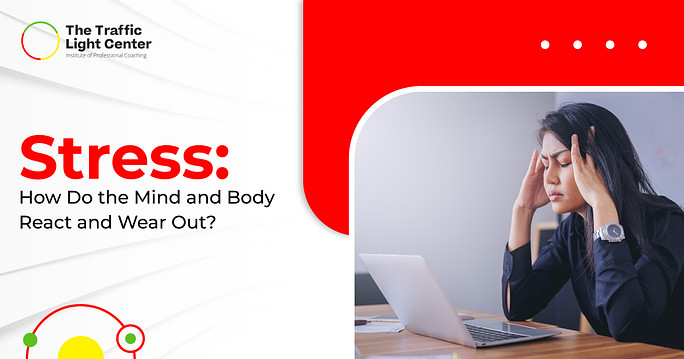Stress: How Do the Mind and Body React and Wear Out?

When stress persists, the body suffers and becomes exhausted. Positive emotions “improve” our physiological parameters and reduce the risk of physical or psychological disorders. How to activate these emotions that do good?
When the brain reacts to a threatening situation, it is the amygdala, a structure belonging to the limbic system which manages the emotion, perceives the signal of danger, and is activated, causing a cascade of physiological modifications: the energy reserves are mobilized, the heart rate increases to better supply the muscles with nutrients, the sweating increases, the respiration increases in order to allow a large quantity of oxygen to reach the brain and the muscles, natural analgesics are released in a preventive way, platelets are activated to minimize blood loss in the event of an injury, inflammatory phenomena are triggered to protect the body.
During this reaction, the body, therefore, mobilizes to face a threat, and it is this automatic response that enables our ancestors to survive and face the dangers and predators to which they were subjected (fight or flight: we fight or we flee).
This stress response is therefore necessary for the body in many situations, for example, when we are crossing the road, and a car is approaching quickly.
Or, when in the event of an injury, the mechanisms of inflammation are activated to promote wound healing. On the other hand, the stress response is harmful when it is too frequent and becomes chronic (for example, when we are “under tension” at work).
This response does not leave time or the possibility for the body to return to a state of balance; in the long term, the body “wears out,” which can promote the development of certain pathologies such as depression, viral diseases, or cardiovascular abnormalities.
Alongside these biological mechanisms, behavioral factors can also influence the risk of developing cardiovascular disease: diet, tobacco, and lack of physical exercise. Stressed, we can eat more, smoke, and do less sport, for example. , as many risk factors are again linked to our emotions.
So What Is An Emotion?
An emotion is an affective state caused by an automatic evaluation of our needs. It involves behavioral, physiological, and cognitive adjustments related to the situation. It prepares the body to act effectively and appropriately in a given context. Emotions are divided into two categories: negative or unpleasant and positive or pleasant.
The study of the impact of emotions on health is a fairly developed area of research, and the impact of negative emotions on health is widely known, but since the 1990s, has also been studied, the link between emotions such as joy, vitality, curiosity, gratitude, and improved physical health. Some conclusions have also shown a higher resistance to infections and a reduced probability of cardiovascular and cerebrovascular accidents or diseases of aging.
Our emotions would therefore have a direct influence on the health of our heart, and different methods make it possible to better manage stress in the face of destabilizing situations such as mindfulness meditation or hypnosis, for example.
You can work to develop your hedonic well-being, which corresponds to the pursuit of pleasure, and your eudemonic well-being, which is linked to self-realization, autonomy, positive relationships with others, and meaning that we give into existence.
It has indeed been shown that hedonic well-being and eudemonic well-being (which goes beyond immediate gratification) and more for the latter are associated with the activation of “anti-stress” genes.
How Can You Improve Your Well-Being In Order To Activate These “Anti-Stress” Factors?
Slow walking in the forest is increasingly advocated in Japan as a form of preventive anti-stress medicine.
The “Shinrin-yoku,” which means “forest bathing,” leads the person to pay attention to the freshness of the air, the colors, and the sounds. It is a form of meditation that consists of being present in the environment.
Dr. Wendy M. O’Connor is a famous licensed Marriage and Family Therapist in Los Angeles, California. If you are looking for the Best Psychologist in Los Angeles, Contact us.




